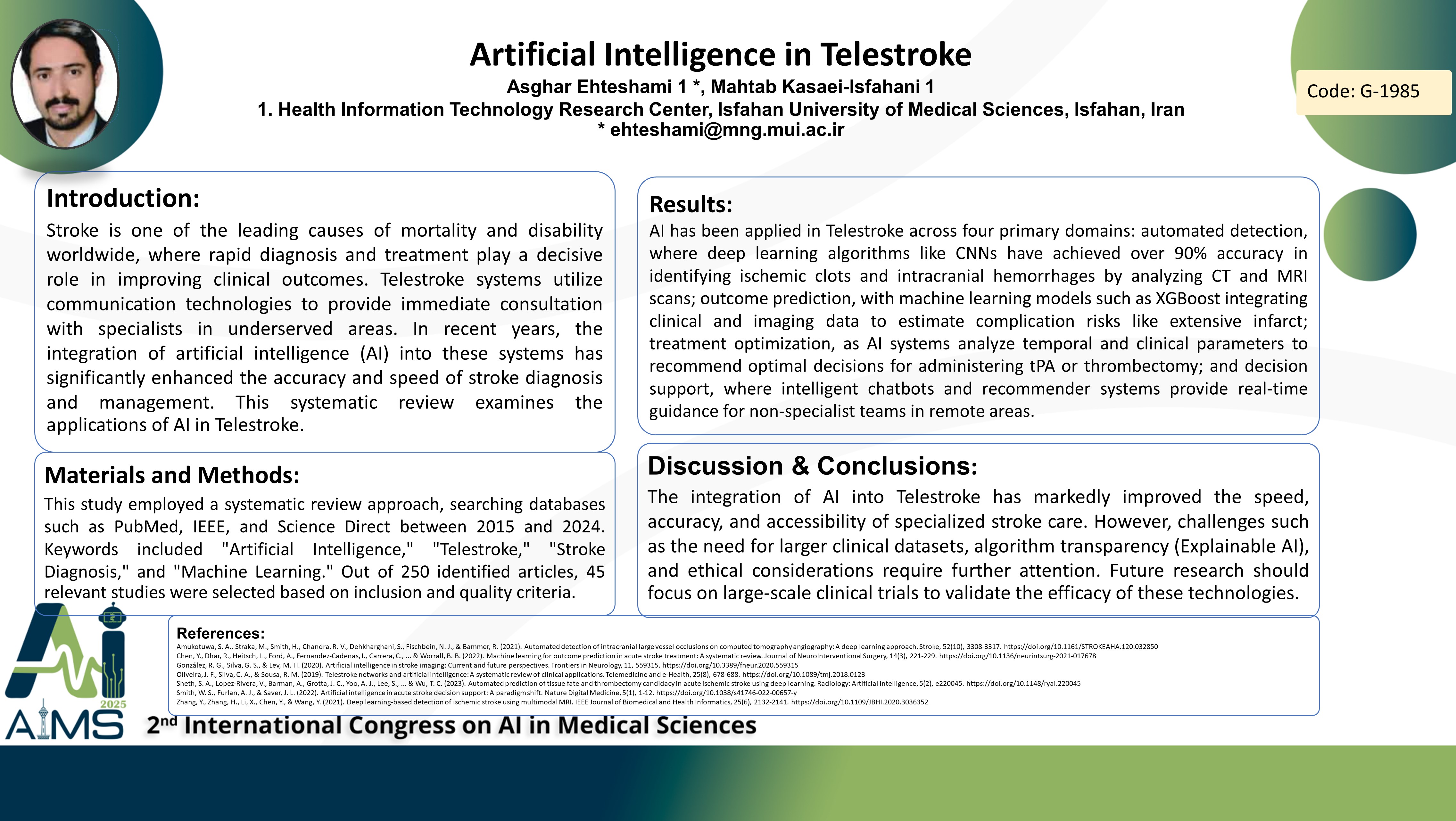Artificial Intelligence in Telestroke
Code: G-1985
Authors: Asghar Ehteshami * ℗, Mahtab Kasaei-Isfahani
Schedule: Not Scheduled!
Tag: Clinical Decision Support System
Download: Download Poster
Abstract:
Abstract
Introduction : Stroke is one of the leading causes of mortality and disability worldwide, where rapid diagnosis and treatment play a decisive role in improving clinical outcomes. Telestroke systems utilize communication technologies to provide immediate consultation with specialists in underserved areas. In recent years, the integration of artificial intelligence (AI) into these systems has significantly enhanced the accuracy and speed of stroke diagnosis and management. This systematic review examines the applications of AI in Telestroke. Methods : This study employed a systematic review approach, searching databases such as PubMed, IEEE, and Science Direct between 2015 and 2024. Keywords included "Artificial Intelligence," "Telestroke," "Stroke Diagnosis," and "Machine Learning." Out of 250 identified articles, 45 relevant studies were selected based on inclusion and quality criteria. Findings : AI has been applied in Telestroke across four primary domains: automated detection, where deep learning algorithms like CNNs have achieved over 90% accuracy in identifying ischemic clots and intracranial hemorrhages by analyzing CT and MRI scans; outcome prediction, with machine learning models such as XGBoost integrating clinical and imaging data to estimate complication risks like extensive infarct; treatment optimization, as AI systems analyze temporal and clinical parameters to recommend optimal decisions for administering tPA or thrombectomy; and decision support, where intelligent chatbots and recommender systems provide real-time guidance for non-specialist teams in remote areas. Conclusion : The integration of AI into Telestroke has markedly improved the speed, accuracy, and accessibility of specialized stroke care. However, challenges such as the need for larger clinical datasets, algorithm transparency (Explainable AI), and ethical considerations require further attention. Future research should focus on large-scale clinical trials to validate the efficacy of these technologies.
Keywords
Artificial Intelligence, Telestroke, Stroke Diagnosis,
